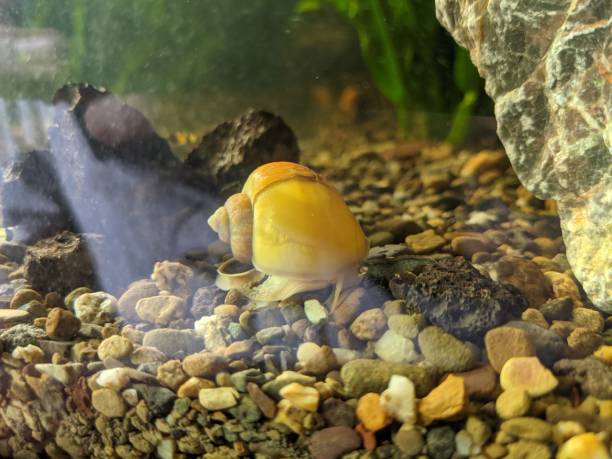Unraveling the Mysteries of Aquatic Snail Intelligence
Dive into the fascinating world of aquatic snails and their surprising cognitive abilities. These often-overlooked mollusks are revealing unexpected levels of intelligence, challenging our perceptions of invertebrate cognition. From problem-solving skills to social learning, aquatic snails are proving to be more than just slow-moving creatures in our aquariums and ponds.

Researchers have found that snails can remember negative stimuli for weeks, altering their feeding patterns to avoid potential threats. This level of memory retention is comparable to that of some vertebrates, challenging the notion that invertebrates have limited cognitive capabilities.
Problem-Solving Prowess
One of the most intriguing aspects of aquatic snail intelligence is their problem-solving abilities. Experiments have shown that certain species of aquatic snails can navigate complex mazes to reach food sources. This spatial awareness and decision-making process indicate a level of cognitive processing that goes beyond simple instinctual responses.
In one study, researchers observed freshwater snails (Planorbis corneus) successfully navigating a water-based T-maze to locate food rewards. The snails not only learned the correct path but also retained this information for future trials, showcasing their capacity for spatial learning and memory.
Social Learning and Information Transfer
Contrary to popular belief, aquatic snails are not solitary creatures devoid of social interactions. Recent research has uncovered evidence of social learning among certain snail species. For example, great pond snails (Lymnaea stagnalis) have been observed engaging in a form of observational learning, where individuals acquire new behaviors by watching and imitating their conspecifics.
This social learning extends to predator recognition and avoidance behaviors. Naive snails can learn to identify potential threats by observing the reactions of experienced individuals, demonstrating a sophisticated form of information transfer within snail populations.
Sensory Processing and Decision Making
Aquatic snails possess a variety of sensory organs that allow them to perceive and process information from their environment. Their highly developed chemical senses, including olfaction and gustation, play a crucial role in foraging, mate selection, and predator avoidance.
Recent studies have revealed that snails can integrate multiple sensory inputs to make complex decisions. For instance, some aquatic snail species have been observed weighing the trade-offs between food quality and predation risk, adjusting their behavior based on the perceived danger in their environment.
Implications for Ecology and Conservation
Understanding the cognitive abilities of aquatic snails has significant implications for ecology and conservation efforts. As important members of aquatic ecosystems, snails play crucial roles in nutrient cycling and serve as indicators of environmental health. Their ability to learn and adapt to changing conditions may influence their resilience to environmental stressors, including pollution and climate change.
Conservation strategies that take into account the cognitive capabilities of aquatic snails may be more effective in preserving these often-overlooked species. For example, recognizing their capacity for spatial learning could inform the design of protected areas or the implementation of habitat restoration projects.
Future Research and Potential Applications
The field of aquatic snail intelligence is still in its infancy, with many questions yet to be answered. Future research directions may include exploring the neural mechanisms underlying snail cognition, investigating potential variations in intelligence across different snail species, and examining how environmental factors influence cognitive development in these mollusks.
The insights gained from studying aquatic snail intelligence could have far-reaching implications beyond the realm of malacology. Understanding the cognitive processes of these relatively simple organisms may provide valuable insights into the evolution of intelligence and the fundamental principles of learning and memory.
Conclusion
The emerging field of aquatic snail intelligence challenges our preconceptions about invertebrate cognition and invites us to reconsider the mental capacities of these humble creatures. From their problem-solving abilities to their capacity for social learning, aquatic snails are proving to be far more intelligent than previously thought. As research in this area continues to evolve, we may find that these slow-moving mollusks have much to teach us about the nature of intelligence and the cognitive potential of even the simplest life forms.




